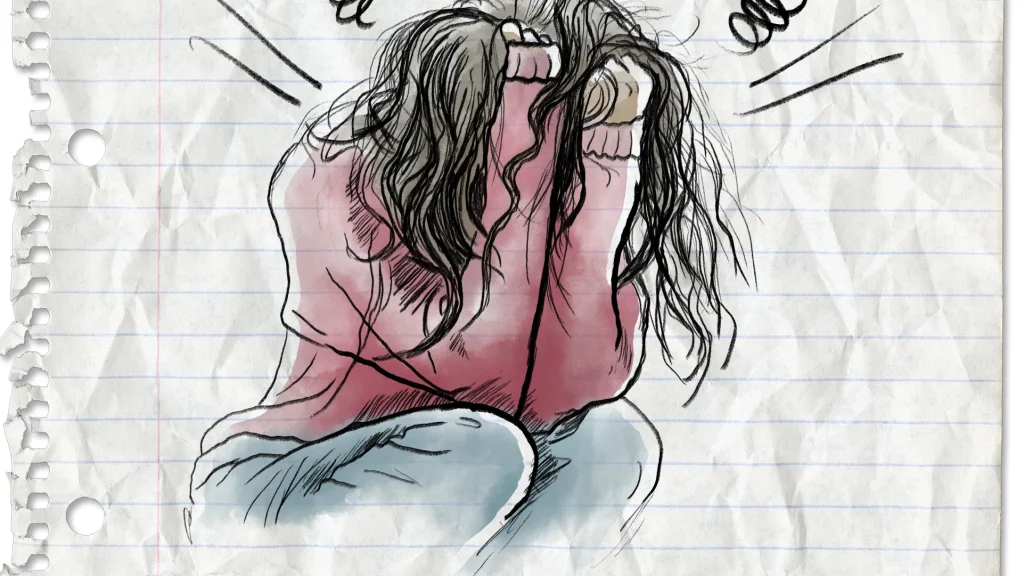Understanding Anxiety: Causes, Symptoms, and Coping Strategies

Anxiety is a common emotional experience that can affect anyone at any stage of life. While it’s normal to feel anxious in response to certain stressors, chronic anxiety can interfere with daily functioning and overall well-being. In this blog, we will delve into the causes of anxiety, identify its symptoms, and provide effective coping strategies to manage it.
What is Anxiety?
Anxiety is a natural response to stress, characterized by feelings of worry, nervousness, or fear. While occasional anxiety is a normal part of life, persistent and excessive anxiety may indicate an anxiety disorder, which can significantly impact a person’s quality of life.
Causes of Anxiety
Understanding the root causes of anxiety is essential for effective management. The causes of anxiety can be multifaceted, including:
- Genetics: Anxiety disorders can run in families, suggesting a genetic predisposition. If you have a family history of anxiety, you may be more likely to experience it.
- Brain Chemistry: Imbalances in neurotransmitters, such as serotonin and dopamine, can contribute to anxiety. These chemicals play a crucial role in regulating mood and emotions.
- Environmental Factors: Stressful or traumatic life events, such as the loss of a loved one, abuse, or financial difficulties, can trigger anxiety. Chronic stress at work or in personal relationships can also be a significant contributor.
- Personality Traits: Certain personality traits, such as being highly sensitive, perfectionistic, or having low self-esteem, can make individuals more prone to anxiety.
- Medical Conditions: Some medical conditions, such as heart disease, diabetes, or thyroid problems, can cause or exacerbate anxiety symptoms. Additionally, certain medications can have anxiety as a side effect.
Symptoms of Anxiety
Anxiety can manifest in various physical, emotional, and behavioral symptoms. Recognizing these symptoms is the first step toward managing anxiety effectively.
Physical Symptoms:
- Increased heart rate
- Sweating
- Trembling or shaking
- Shortness of breath
- Dizziness or lightheadedness
- Muscle tension
- Fatigue
- Gastrointestinal issues, such as nausea or diarrhea
Emotional Symptoms:
- Excessive worry or fear
- Feelings of impending doom
- Irritability
- Restlessness
- Difficulty concentrating
- Overwhelm
Behavioral Symptoms:
- Avoidance of anxiety-inducing situations
- Social withdrawal
- Procrastination
- Compulsive behaviors

Coping Strategies for Anxiety
Managing anxiety effectively requires a combination of strategies. Here are some practical techniques to help you cope with anxiety:
- Practice Mindfulness and Meditation: Mindfulness and meditation can help ground you in the present moment and reduce the tendency to ruminate on anxious thoughts. Techniques such as deep breathing, progressive muscle relaxation, and guided imagery can be particularly effective.
- Exercise Regularly: Physical activity can reduce anxiety by releasing endorphins, which are natural mood lifters. Aim for at least 30 minutes of moderate exercise, such as walking, running, or yoga, most days of the week.
- Maintain a Healthy Diet: Eating a balanced diet can impact your mood and energy levels. Avoid excessive caffeine and sugar, as they can exacerbate anxiety symptoms. Include plenty of fruits, vegetables, whole grains, and lean proteins in your diet.
- Get Adequate Sleep: Poor sleep can worsen anxiety, so it’s essential to establish a regular sleep routine. Aim for 7-9 hours of sleep per night and create a calming bedtime routine to promote restful sleep.
- Limit Alcohol and Avoid Smoking: Alcohol and nicotine can increase anxiety levels. Reducing or eliminating these substances from your lifestyle can help manage anxiety more effectively.
- Stay Connected: Social support is crucial for mental health. Maintain relationships with family and friends, and consider joining a support group for people with anxiety.
- Challenge Negative Thoughts: Cognitive-behavioral techniques can help you identify and challenge negative thought patterns that contribute to anxiety. Practice replacing these thoughts with more positive and realistic ones.
- Set Realistic Goals: Break down large tasks into smaller, manageable steps. Setting achievable goals can help reduce feelings of overwhelm and build confidence.
- Learn to Say No: Taking on too many responsibilities can increase stress and anxiety. Practice setting boundaries and saying no to requests that are beyond your capacity.
- Seek Professional Help: If anxiety significantly impacts your life, consider seeking help from a mental health professional. Therapy, such as cognitive-behavioral therapy (CBT), and medication can be effective treatments for anxiety disorders.
Conclusion
Anxiety is a complex condition with various causes and symptoms, but it is manageable with the right strategies. By understanding the root causes, recognizing the symptoms, and implementing effective coping techniques, you can take control of your anxiety and improve your overall quality of life. Remember, it’s important to be patient with yourself and seek support when needed. With persistence and the right approach, managing anxiety is entirely possible.















